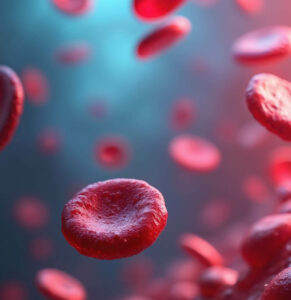Cardiovascular disease (CVD) continues to be one of the most pressing health concerns around the globe. At ViveWell Health, we see firsthand how it impacts lives, and we’re committed to changing that story. As the physician founder, I’ve partnered with Satya Williams, a highly trained, board-certified Functional and Integrative Registered Dietitian Nutritionist, to bring you this guide on cardiovascular labs. Together, we combine medical expertise and functional nutrition to help our patients take control of their heart health with personalized, premium care.
One of the most powerful tools we use is advanced cardiovascular labs. These specialized tests give us a deeper look at what’s happening in your body, beyond the standard cholesterol panel. By measuring key markers like Apo B, Lipoprotein(a), oxidized LDL, LP-PLA2, homocysteine, HS-CRP, and ferritin, cardiovascular labs reveal early warning signs tied to inflammation, oxidative stress, and plaque formation. In this article, we’ll explore these markers and share integrative strategies rooted in precision nutrition and cutting-edge therapies to help you protect your heart for years to come.
Key Markers in Cardiovascular Labs
Apo B (Apolipoprotein B)
Apo B is a protein found in LDL (“bad cholesterol”) that signals the number of atherogenic particles in your blood. High Apo B means a greater risk for plaque buildup, making it a stronger CVD predictor than standard LDL measurements.

Lipoprotein(a)
Lp(a) is a sticky LDL variant that can clog arteries, increasing the risk of heart attack and stroke, even at a younger age. While it’s largely genetic, the right strategies can help reduce its impact.
Oxidized LDL
This harmful form of LDL develops from oxidative damage. It plays a key role in plaque formation and reflects the level of oxidative stress in your body.
LP-PLA2
An enzyme linked to inflammation in the artery walls, LP-PLA2 is a sign of active vascular inflammation, which can make plaques more unstable and prone to rupture.
Homocysteine
Elevated homocysteine can damage blood vessels, promote clotting, and speed up plaque formation. It’s often linked to low levels of certain B vitamins.
HS-CRP
High-sensitivity C-reactive protein measures inflammation throughout the body. Elevated levels can destabilize plaques and increase the risk of a heart attack.
Ferritin
Ferritin measures stored iron. Too much iron can fuel oxidative stress, harming your blood vessels and contributing to atherosclerosis.
Precision Nutrition as the Foundation
Food isn’t just fuel, it’s information for your body. The way you eat can profoundly affect inflammation, oxidative stress, and cholesterol balance. At ViveWell Health, we use the insights from cardiovascular labs along with advanced genetic testing from IntellxxDNA and Nutrition Genome to create lifestyle, dietary, supplement, and pharmacogenetic plans tailored to your unique biology.
No two people are the same, foods that benefit one person might work against another. Satya Williams’ expertise in functional nutrition helps our patients reduce digestive inflammation, one of the hidden drivers of heart disease.
Functional Gut Therapies
- Fatty Acid Optimization: We select fats like olive or coconut oil to promote larger, less atherogenic cholesterol molecules, guided by cooking techniques and oil heat tolerance.
- Hybrid Energy Balance: Our bodies use glucose (carbohydrates) and ketones (fats). Over-reliance on glucose causes a “rusting” effect via the Maillard reaction, producing toxic byproducts like advanced glycation end products (AGEs). Ketones, a cleaner energy source, are optimized through genetic and digestive insights.
- Mitochondrial Support: Nutrients tailored to individual needs clear metabolic waste (reactive oxygen species) from mitochondria, enhancing energy production and reducing oxidative stress.
Dietary Strategies
- Mediterranean Diet: Rich in fruits, vegetables, nuts, olive oil, and fatty fish, it lowers Apo B and HS-CRP.
- DASH Diet: Emphasizes low-glycemic carbs and potassium-rich foods to reduce blood pressure and inflammation.
- Low-Glycemic Load & Pairing: Pair low-glycemic carbs with protein, fat, and fiber (e.g., apple with almond butter and chia seeds) to minimize blood sugar spikes.
- Order of Eating: Start with protein, fat, or fiber to reduce glucose spikes by up to 50%.
- K2-Rich Foods: Found in grass-fed butter and natto, vitamin K2 reduces plaque calcification.
- Avoid Trans Fats: These increase Apo B and oxidized LDL.
- Anti-Inflammatory Foods: Cruciferous vegetables, garlic, and omega-3s (chia, flaxseeds, fatty fish) combat inflammation, tailored to avoid individual sensitivities.
- Liver Detoxification: Vegetables and herbs support toxin elimination, reducing cardiovascular burden.
Integrative Therapies for Market Leadership
ViveWell Health’s integrative approach blends the best of conventional medicine with advanced, evidence-based therapies that aim to address CVD at its roots, without unnecessary side effects. Many of these therapies are selected based on cardiovascular labs results, ensuring precision care.
Nutritional Supplements
- Vitamin C: Reduces oxidative stress and supports vessel collagen.
- Omega-3 Fatty Acids: Lowers HS-CRP and improves lipid profiles.
- Coenzyme Q10 (CoQ10): Enhances mitochondrial function.
- Nattokinase: Supports plaque breakdown.
- Turmeric/Curcumin: Lowers HS-CRP and aids detoxification.
- Berberine: Improves insulin sensitivity and cholesterol.
Advanced Therapies
- Ozone Autohemotherapy: Reduces oxidized LDL by enhancing oxygen delivery.
- Bio Photonic Activation with Hemealumen: Stimulates cellular repair and reduces oxidative stress.
- Splish Naturals PEMF: Pulsed electromagnetic field therapy supports vascular health and reduces inflammation.
- Inhaled Hydrogen: A potent antioxidant, it mitigates oxidative damage.
- Imported Plaquex Phosphatidylcholine: Restores cell membrane health, reducing plaque and improving lipid metabolism.
- Toxic Metal Chelation: Removes heavy metals, reducing oxidative stress and vascular damage, with protocols tailored to patient needs.
Lifestyle Interventions
- Exercise: 150 minutes weekly improves lipid profiles and insulin sensitivity.
- Stress Management: Meditation or yoga lowers homocysteine and HS-CRP.
- Hormone Optimization: Balanced testosterone in men may reduce Lp(a).
Monitoring and Follow-Up
We don’t just set a plan and walk away, we retest important markers like Apo B, Lp(a), and HS-CRP every 8–12 weeks. This ensures your cardiovascular labs reflect measurable improvement, and our team adjusts your care plan as needed to keep you on track.
Your Blueprint for a Healthier Heart
Advanced cardiovascular labs reveal the root causes of heart disease. At ViveWell Health, our precision nutrition, guided by IntellxxDNA and Nutrition Genome, along with integrative therapies like ozone, Hemealumen, PEMF, inhaled hydrogen, Plaquex, and chelation, offer unmatched, personalized solutions for transformative care. Take control of your heart health today, book your free health discovery with ViveWell and start your personalized journey with our expert team.






